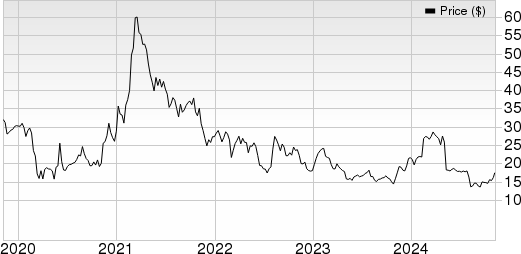Comparative Growth Trajectories
Pinduoduo (PDD), the Chinese e-commerce marvel, has enjoyed a meteoric rise since its IPO in July 2018, surging from $19 to $135 per share, boasting a $180 billion market cap. In contrast, industry stalwart Alibaba (NYSE: BABA) has grappled with challenges, leading to a 60% decline in its stock since PDD’s debut.
Examining the growth rates, from 2018 to 2022, PDD recorded a compound annual growth rate (CAGR) of 78% in revenue, expected to hit 81% in 2023 at 236.2 billion yuan ($33.2 billion). Meanwhile, Alibaba achieved a CAGR of 23% from fiscal 2019 to 2023, with estimates projecting an 8% increase in revenue for fiscal 2024.
PDD’s Recipe for Success
Pinduoduo’s success can be attributed to its strategic maneuvers. Firstly, by establishing a niche with a discount marketplace that incentivized mass ordering through social media, it outpaced Alibaba in secondary cities. Secondly, PDD capitalized on this momentum to create an online agricultural platform, bypassing traditional retail channels and becoming China’s top agricultural marketplace.
Moreover, amidst Alibaba’s regulatory conundrums in 2021, PDD ventured into premium markets, enhancing its appeal by offering high-quality goods. Additionally, PDD’s focus on profitability by eliminating low-margin segments and optimizing logistics boosted its net profits significantly, all while trading at modest multiples.
Headwinds on the Horizon
Despite its current success, PDD faces potential challenges ahead. Continuing its expansion in the e-commerce landscape and global markets with Temu may expose it to regulatory hurdles, as already signaled by Google’s actions. Furthermore, surpassing Alibaba may trigger antitrust scrutiny, leading to a potential slowdown akin to its competitor.
While PDD has outpaced peers during China’s economic lulls, a prolonged slowdown could test its resilience and growth trajectory over the coming years.
Strategic Roadmap to Trillion-Dollar Valuation
Should PDD maintain its current valuations, achieving a trillion-dollar market cap by 2030 would necessitate a 28% CAGR in revenue and earnings. Current projections suggest a 32% CAGR from 2023 to 2025, gradually stabilizing thereafter. Sustaining a 26% CAGR from 2025 to 2030 would equate to a 28% CAGR over the period.
Riding on its current momentum and evading regulatory traps, PDD could ascend to trillion-dollar status by the decade’s end. This transformation would not only redefine its stature but also position it favorably against industry giants, potentially heralding its induction into the elite trillion-dollar club.




